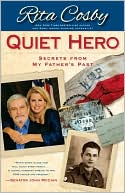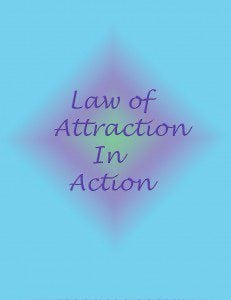 I’m thrilled that my guest is Rita Cosby, a renowned TV host and veteran correspondent who anchored highly rated primetime shows on Fox News Channel and MSNBC. She’s currently a special correspondent for the top-rated CBS Syndicated Newsmagazine, Inside Edition. Rita has made a name for herself by getting interviews with a host of difficult people including Yasser Arafat, Slobodan Miloševi? and David Berkowitz. Her first book, Blonde Ambition, was a New York Times bestseller.
I’m thrilled that my guest is Rita Cosby, a renowned TV host and veteran correspondent who anchored highly rated primetime shows on Fox News Channel and MSNBC. She’s currently a special correspondent for the top-rated CBS Syndicated Newsmagazine, Inside Edition. Rita has made a name for herself by getting interviews with a host of difficult people including Yasser Arafat, Slobodan Miloševi? and David Berkowitz. Her first book, Blonde Ambition, was a New York Times bestseller.
With all her success, Rita’s most important work may end up being her book, Quiet Hero, the story of how her dad, Richard Cosby, joined the Polish resistance in his teens to fight Nazi’s, escaped through the sewers, was injured and then captured, followed by an escape from a German POW camp. Rita knew none of this for most of her life. Richard left his family on Christmas eve, 1983 and had little to do with them after remarrying and having a new family. He was always disconnected emotionally and Rita didn’t understand why—until she discovered his past in an old suitcase and did the most important interview she’d ever done—getting her father to talk about what he lived through.
Quiet Hero is about connecting—a father and daughter creating a loving relationship as they returned to his past and tied it in with their present. I rarely recommend a book so highly. This story is beautifully told, through the eyes of a loving daughter who finally discovered who her father was and embraced his path by embarking on a journey with him to Poland. Rita and her father show that it’s never too late to reach out and connect with a loved one, no matter how distant your relationship, or lack of one, is. Their story will at times have you on the edge of your seat, angry, or crying. But as it goes on, you’ll cry for joy! Here’s what Rita Cosby had to say:
Did you ever feel you were treated differently or had to prove yourself more because you’re a woman? Absolutely. When I applied for my first fulltime job in television, a potential boss said on the phone, “No thanks, we already have a pretty blonde.” It made me realize early on that we have a long way to go to break the glass ceiling. I immediately asked if he had a pretty blond who can speak several languages and will work 20 hours a day. He said “no” and offered me the job. The stereotyping of women was a very powerful lesson for me. I had offers in markets that were more entertainment oriented but I like to cover hard news and meaty issues. At Fox News there were more than a dozen guys and I was the senior correspondent. I’m happy to see that the television industry has blossomed.
How did you build your confidence to interview some of the top political leaders? I always loved journalism and the story. There have been times I had to go on air with no makeup because I had a big scoop. The priority to me has always been sharing the story. Sometimes I think about it after the fact. It can take days or years to get one person. I got the interview with Yasser Arafat on Christmas day and had to rush to the airport. One of my producers sent me the material and I spent the whole flight reading. I get in the zone preparing for the interview.
I worked well over a year to get Serbian president Slobodan Miloševi? for an interview. Suddenly one day he called me. Sometimes you prepare and prepare and the call comes out of the blue. I like to interview them when it’s at a pivotal point than at a normal time. I interviewed Arafat right after 9/11 and Miloševi? when he was at The Hague. It makes the job a lot more difficult for me but the interview has much more meaning. I’m rarely nervous because I’m so excited to ask that person questions that will hopefully make a difference. To me it’s such a gift to have a half hour, or even an historic 5 minutes. I relish in the moment.
Why do you think people like Miloševi? come to you? I think people want to be understood and in their own twisted logic want to provide an explanation to the world. By speaking to a journalist with a history of interviewing difficult people, they believe I can present it in a fair manner and think they can find a voice and feel they’ve gotten an outlet to express themselves.
Why did Cosmopolitan Magazine select you as a “Fun and Fearless Female?” I loved that! To be recognized by a women’s magazine was gratifying. They felt I had dodged a lot of bullets, literally and figuratively, with my interviews. They’d seen me in action on many difficult stories. I think a female journalist has to be fearless to report the truth and follow stories that are often very difficult, and you also have to have a sense of humor about yourself at the end of the day. The minute you take yourself too seriously and don’t have fun on the job, you’re in the wrong place. Every day I wake up excited to see what’s happened in the world and how I can contribute in some way.
How did you feel when you first discovered that your father’s past as a Polish resistance fighter? When I sat in the storage locker going through my mother’s belongings after she had passed and found his old suitcase, I opened it and essentially found my dad’s past. There was a red/white fighting armband with blood and dirt all over it and the card of an ex-POW with the name Ryszard Kossobudski. It was so overwhelming I wept in that storage locker, knowing this man who was always disconnected from me growing up, and so emotionally void, had gone through something so horrific, and survived. It immediately gave me a whole new perspective of who he was and who I was.
There’s something very overwhelming when you’re holding a rusty POW tag. I wasn’t even sure it was a POW tag since I’d never seen one. I went on line and pulled up Stalag 4B. It was one of the largest and most brutal POW camps in WWII. I learned that if the tag hadn’t been broken he survived. I remember wondering what did my father survive through? This was a turning point in my life. Do I ignore this man who lefty us abruptly one Christmas or reach out and find redemption within myself? I thought this was one personal interview I needed to do and reached out to my dad. I knew I needed to talk to and understand him.
Why did you write Quiet Hero? My father was happy to hear from me. At 85 he was ready to share his story and I had enough maturity to hear the story and ask questions without pointing fingers. My father probably thought if he didn’t tell it now it might be too late. When we first started talking I was Rita the daughter, not the journalist. It was an extraordinary story of heroism and courage. I remember thinking this would make an amazing story. I also thought what a wonderful journey to go on with my dad and felt it was an important piece of history that needed to be told.
How did his story affect your outlook on your own life? We need to realize that people come from different directions and experiences that shape who they are and their families as well. It’s given me tremendous insight about having compassion for people. Now as a journalist when people say they’re not ready to talk, I have more compassion. Sometimes the greatest stories are not the big name celebrities or world leaders. Sometime the most incredible people are the unsung heroes!
How do you feel when told you’re an inspiration? Very humbled. If sharing my story and pouring my guts out in this book can help others, it was all worth it. Of all the things my dad has done, one of the most courageous things was sharing this story. He felt it was important to share the ups and downs that went on in his family, with the goal that it would help other people. I’ve been overwhelmed by the response from people who told me that the book helped them to reunite with a family member or friend. Those kind of messages touch me and are so gratifying. This is the most important story of my life and always will be.
With all your accomplishments, what was the most satisfying so far? More than any great interview I’ve done professionally, to have this breakthrough with my dad and have a great father in my life that I can share that with others, feels like I won the lottery. I encourage people to reach out and not be afraid to take a chance. You can bridge the gap. I was able to break through the hard shell and pain he’s carried with him for decades. This had been a liberation for my father. If it inspires people to not be afraid to reach out and take a chance, with compassion and understanding, you can bridge the gap like I did. I now have a wonderful loving dad.
*****************
The paperback for Quiet Hero is just being released. A portion of the proceeds will go to help wounded troops and their families via a USO program called Operation Enduring Care. You won’t be sorry if you buy this book! Rita Cosby‘s gift for reporting combined with her emotional connection make it a riveting read.
*****************
Take the self-love challenge and get my book, How Do I Love Me? Let Me Count the Ways for free at http://howdoiloveme.com. And you can post your loving acts HERE to reinforce your intention to love yourself. Read my 31 Days of Self-Love Posts HERE.
Please leave comments under my posts so we can stay connected.

